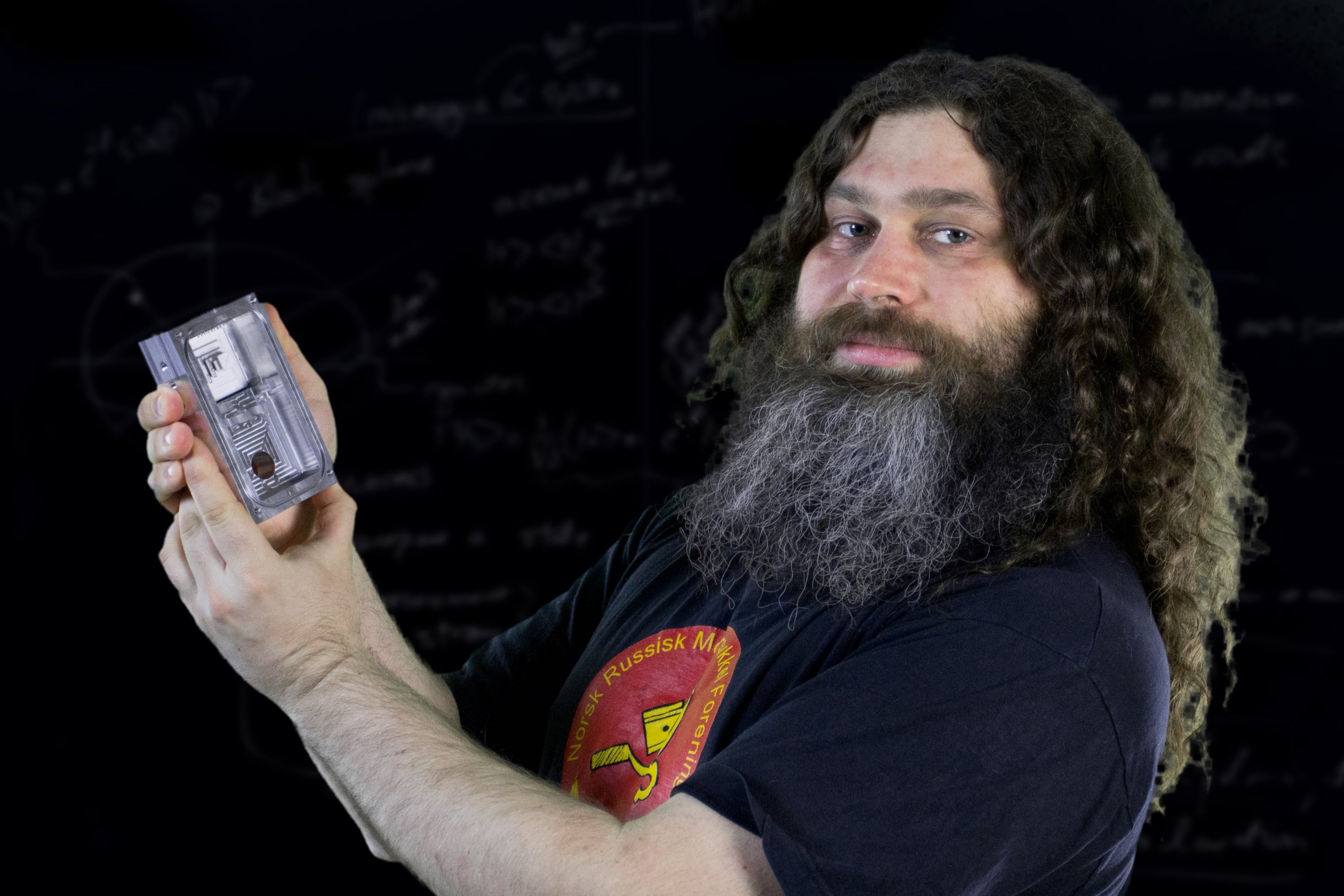The Institute for Quantum Computing (IQC) welcomes its newest research assistant professor, Vadim Makarov — a "quantum hacker" who tests the vulnerabilities of quantum cryptography hardware.

In other words, he's one of the good guys.
Unlike "black hat" hackers, who illegally break into networks and create disruptive computer viruses, Makarov's goal is to expose the faults in cryptographic systems — and suggest ways to fix those faults — before the bad guys can exploit them.
More specially, the Russian-born Makarov is a quantum hacker — a rare breed of expert whose work is focused on quantum cryptography systems.
Makarov joined IQC as an assistant research professor this February, following a postdoctoral fellowship at the Norwegian University of Science and Technology, where he ran a quantum hacking lab.
Although quantum cryptography offers perfect security in principle — the laws of physics guarantee its security — physical implementations can have loopholes in practice. Turning theoretical ideas into physical hardware is an imperfect process, which means a piece of quantum cryptography hardware may be vulnerable to unexpected attacks.
Makarov's job is to be the attacker.
Quantum cryptography systems, such as Quantum Key Distribution (QKD), are often described in terms of transmissions between a sender "Alice" and a receiver "Bob" — with "Eve" in the middle as the theoretical eavesdropper.
"I'm Eve," says Makarov. "We have experimentally demonstrated loopholes in Quantum Key Distribution systems, both in commercial products and in research prototypes."
Once Makarov discovers such a fault in commercial hardware, he alerts the maker of the hardware (what he calls "responsible disclosure"), and suggests possible fixes. A few months later, after the maker has had time to address the problem, the faults are publicly disclosed in scientific journals.
Makarov's quantum hacking lab requires highly sophisticated optics equipment, and his permanent research space will be a 70-square-metre lab at the Mike & Ophelia Lazaridis Quantum-Nano Centre.
"We are going to have the best lab in the world for testing practical security of quantum cryptography," he says.